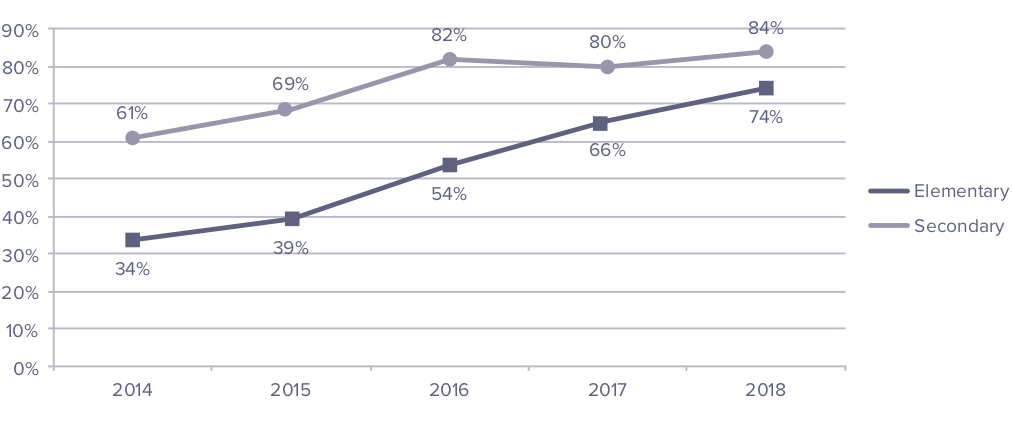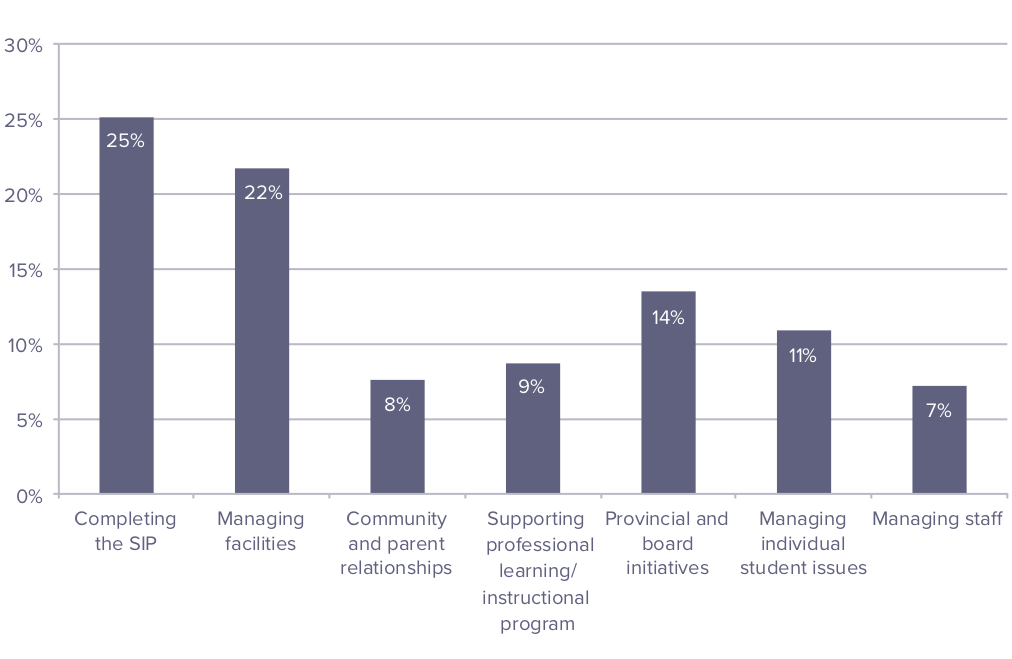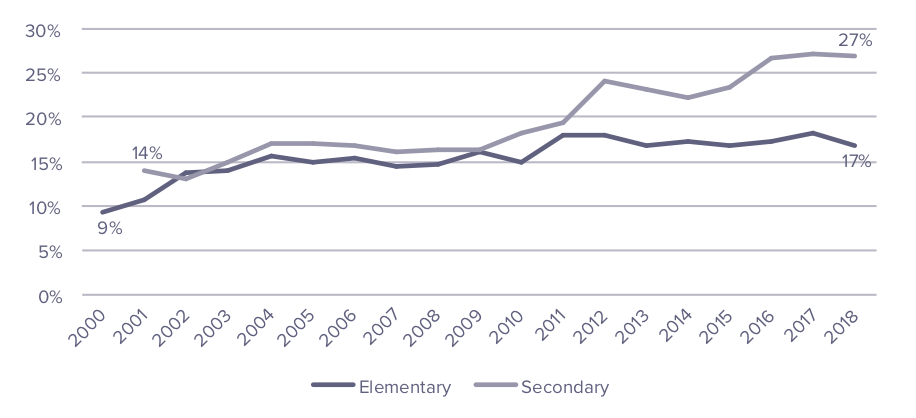New report from People for Education provides recommendations for new government
For immediate release
TORONTO (June 25, 2018) – A new report from People for Education – based on survey results from more than 1,200 Ontario schools – reveals significant improvements in areas such as Indigenous education and childcare. But the report also points to strains in the system including principals who are over-stretched, a lack of support for students struggling with their mental health, and inequitable access to things like enrichment and childcare.
According to the report’s authors:
It is time to focus on the new basics for public education. There is an opportunity for Ontario to take a leading role in Canada by targeting increasingly critical areas for long-term success, including creativity, health, citizenship, and social-emotional learning. But to ensure that Ontario continues to be a leader in education, the province will have to make a commitment to providing the resources and policy necessary to support and integrate the development of these competencies across the curriculum and in the day-to-day lives of students.
Indigenous education on the rise

Change over time in proportion of schools with Indigenous education opportunities
The report points out that changed policy and increases in funding have had a dramatic impact on Indigenous education opportunities in the province’s schools.
It also notes that schools with Indigenous staff are much more likely to have Indigenous learning opportunities. In 2018:
- 74% of elementary and 84% of secondary schools offer at least one Indigenous learning opportunity, compared to 34% and 61% respectively in 2014.
- 59% of elementary and 71% of secondary schools report providing professional development for teachers around Indigenous cultural issues.
- 21% of elementary schools and 46% of secondary schools report having a self-identified Indigenous person on staff.
- 87% of elementary schools with an Indigenous staff member have at least one Indigenous education opportunity, compared to 67% of those without an indigenous staff member.
Principals under strain

Where elementary principals spend the most time
Findings from the surveys suggest that principals are challenged by competing demands. They report that existing mental health resources such as social workers, psychologists, and guidance counsellors, are insufficient to meet students’ needs. In 2018:
- 22% of elementary principals report that managing facilities takes more time than any other task, and 27% of secondary principals rank managing staff as their most time-consuming task.
- In comparison, only 9% of elementary and 13% of secondary principals report that supporting professional learning and improving the instructional program is the task they spend the most time on.
Special education challenges

Change over time in average percentage per school of students receiving special education support
The proportion of students receiving special education support continues to rise in Ontario, and nearly all schools have at least a part-time special education teacher. However, only 72% of rural elementary schools report a full-time special education teacher, compared to 92% of urban schools. In 2018:
- 58% of elementary and 48% of secondary school principals report they have had to recommend a student with special education needs not attend school for the full day. This is a substantial increase from 48% and 40% respectively, in 2014.
- 73% of elementary principals who answered “yes” to this question, said it was for safety reasons, while 18% said it was because supports were not available.
Childcare in schools
While the findings for this year show a substantial increase in the proportion of schools with on-site child care, the report also points to the long-term impact of quality early childhood education and worrying inequities in families’ access to these vital programs. In 2018:
- 80% of elementary schools with kindergarten report on-site childcare, compared to only 47% in 2012.
- 90% of schools with a high proportion of students whose parents have completed university offer childcare for kindergarten-aged students, compared to only 66% of schools with a low proportion of university graduates.
- Schools with higher proportions of affluent families are 10 percentage points more likely to offer childcare programs than schools with a high proportion of students who come from poverty.
Recommendations for next steps
The report includes nine overall recommendations for change to policy or funding, and recommendations for working with groups such as Ontario’s principals’ councils to develop new ways to support principals.
According to David Cameron, People for Education’s Research Director,
Ontario’s young people require concrete commitments – and resources – to ensure that all of them – no matter what their family income, their parents’ education, their ethnicity or race, or where they live in the province – have access to a broad range of learning opportunities that provide an equitable chance for long-term success, in school and in life. These are the new basics for public education.
– 30 –
